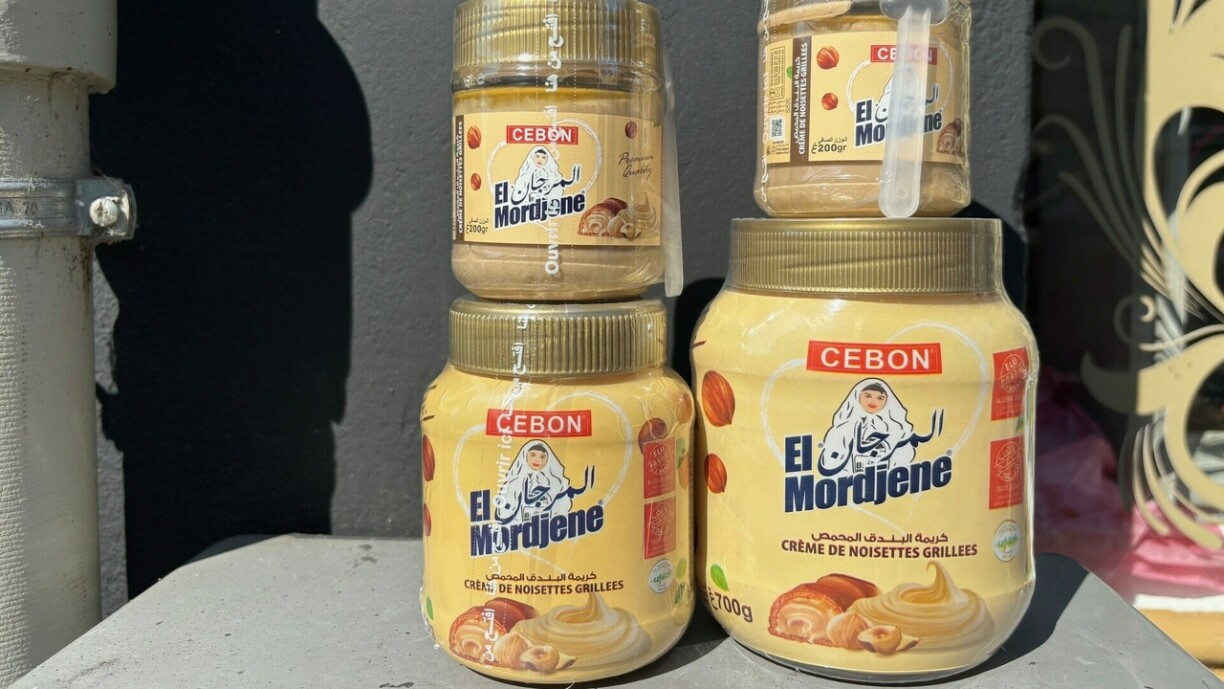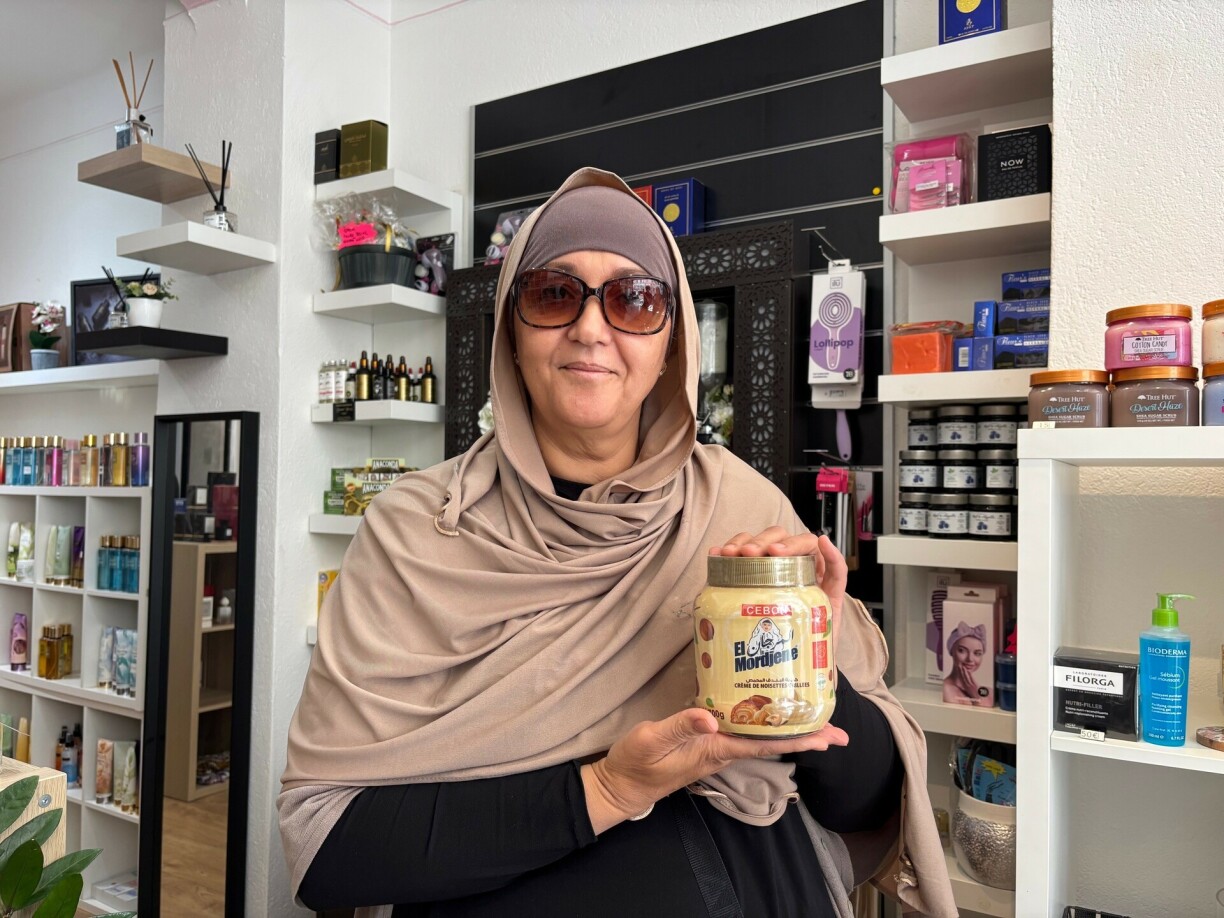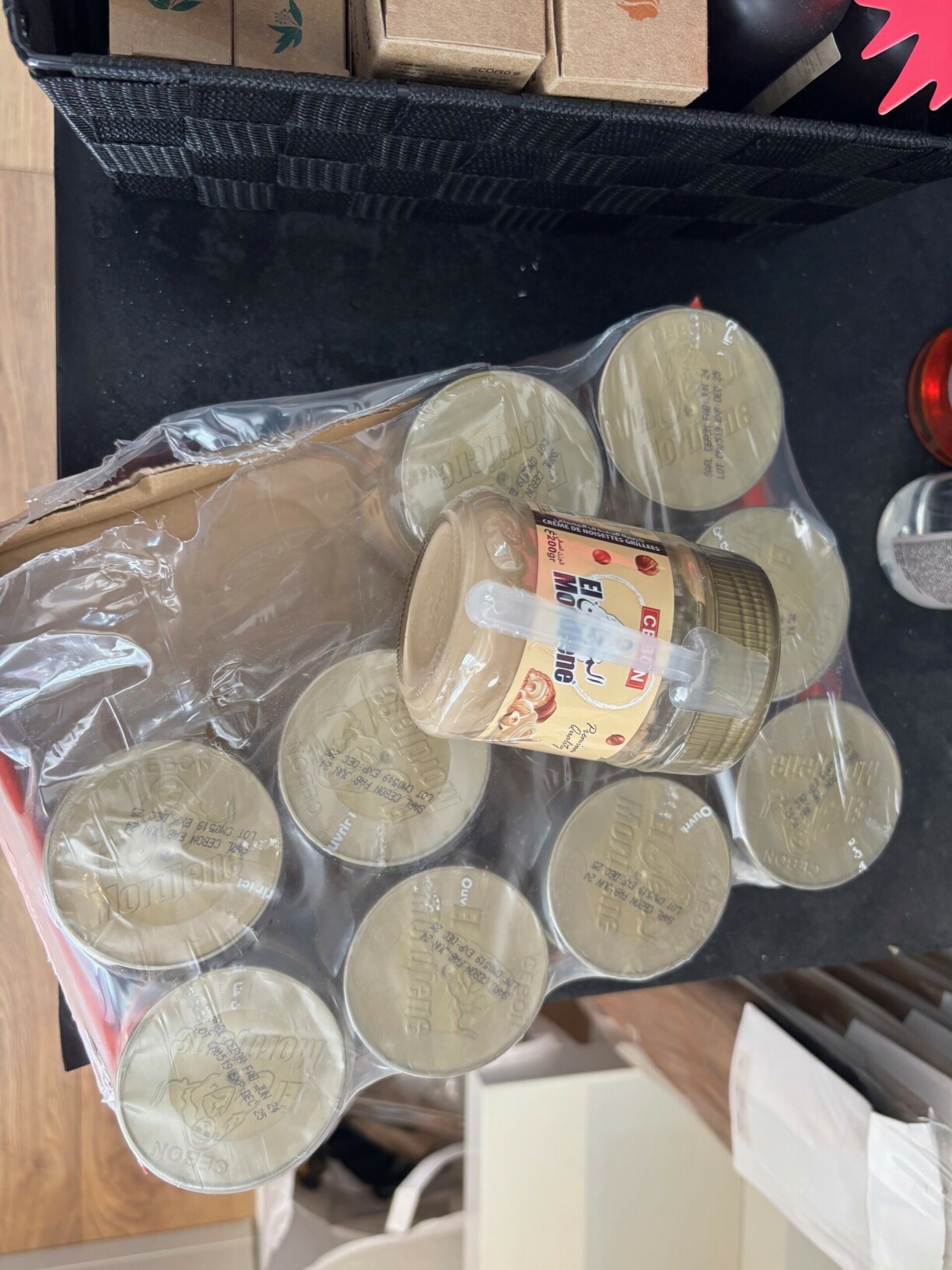
In Esch-sur-Alzette, curious onlookers and loyal consumers are lining up outside a local store, eager to find the Algerian spread El Mordjene Cebon, which has recently gone viral on French social media.
Despite being banned from sale in Europe as of Tuesday, some consumers continue to find ways to bypass the restrictions and resell the much-talked-about spread.
For several weeks now, the hype around El Mordjene Cebon has only increased, with influencers promoting it online. The product remains in high demand, even after being removed from French store shelves on 17 September due to its incompatibility with European Union import regulations.
On Thursday afternoon, several customers waited patiently at a shop in Esch-sur-Alzette, determined to purchase the white spread, which is often compared to the taste of Kinder Bueno. “I don’t mind travelling to get it,” said Mina, a 54-year-old local resident. She arrived with her children, determined to get her hands on the sought-after spread.

“My children have never tried it. As an Algerian, I’m proud to see a product from my country gain such popularity,” she said. Mina made sure to arrive at the store’s opening to avoid missing out. “The price doesn’t matter, I just want to make them happy,” she added, pleased to have been able to buy the spread.
Following the ban, the price of El Mordjene Cebon has surged. Once sold at an affordable rate, the spread is now being offered well above its original market price.
The manager of the shop in Esch-sur-Alzette reports selling the spread for €8 per 200 grammes, €12 per 450 grammes, and €15 per 700 grammes. He obtained his stock from a shopkeeper friend who had remaining supplies. Meanwhile, on social media platforms, 350-gramme jars are being resold for as much as €30.

“It’s completely unreasonable,” says Assia, a student from Luxembourg. “In Algeria, a small jar costs barely 50 cents, and even the largest doesn’t cost more than €7,” she noted. Prior to the product’s viral popularity, Assia would buy it at a local grocery store for around €3, and she is puzzled by the sudden price hike.
El Mordjene Cebon, made from milk powder imported from France and processed in Algeria, faces European restrictions due to Algeria’s inability to meet “the necessary conditions required for a third country to export goods containing dairy products for human consumption in compliance with European animal health and food safety standards,” according to a statement from the French Ministry of Agriculture, as reported by AFP on Thursday.
The Ministry also revealed that an investigation is underway to “identify the mechanisms that allowed this product to reach the market despite the restrictions.”
In Luxembourg, uncertainty persists among consumers. “What risk are we taking by buying a spread?” one customer wondered. Local shopkeepers, meanwhile, admit they are unclear on whether they are legally permitted to sell the product, despite the official announcement of a ban across the EU. Attempts by our colleagues from RTL Infos to contact Luxembourg’s Ministry of Agriculture, Food, and Viticulture for clarification have so far gone unanswered.